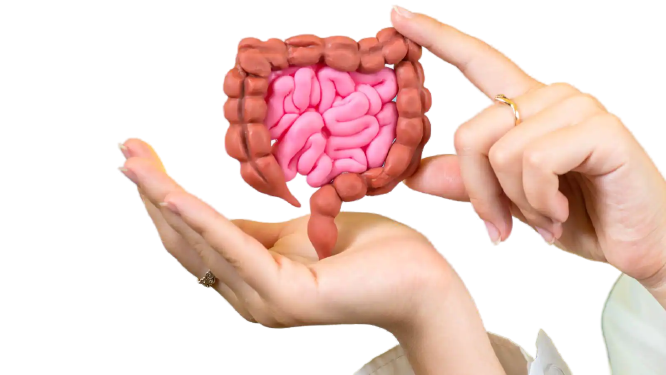“Gut health” is a popular medical and health term. Our gut microbiome consists of the microorganisms and their genetic material found in our digestive tract. We know it’s important because the bacteria in our intestines affect everything from digestion to mental wellness.
What is the intestinal microbiome?
Your gut microbiome is in your big and small intestines, not your stomach.
As you consume food, the gastric acid in your stomach eliminates a significant number of microorganisms.
The objective is a healthy microbiome in the gut. Diet, illnesses, and some drugs can all influence its equilibrium. A gut microbiota that is unhealthy can contribute to certain diseases and influence mental health.

Your digestive tract is the largest immune system organ, including around 80% of your immunity-producing cells.
Symptoms of an unhealthy gut microbiome
Gut dysbiosis is an imbalance of good and bad microorganisms in your body.
Common symptoms include:
Research shows that our gut health plays a significant effect in our overall health, which is why gut health is so crucial. It affects our risk of chronic diseases, our capacity to maintain our weight, and even our immunity. And this imbalance can disturb it all. So to have good gut health, make sure you consume healthy food and stay active.
How to enhance your intestinal microbiome
Here are several ways to enhance your gut microbiota.
-
Consume a variety of fruits and veggies
Focus initially on consuming a variety of fruits and vegetables. You need “microbial diversity,” which will result in improved gut health—for example, a tray filled with different kinds of fruits and vegetables. For instance, combine kale with peppers, tomatoes, and berries to create a salad.

Add fiber to your diet
Ensure that you consume sufficient fiber as a critical component of your diet. It is advised that women consume 25 grams of fiber per day and males consume 35 grams.
Not only does fiber help maintain regular bowel movements, but it also reduces cholesterol and prevents blood sugar spikes. Whole wheat pasta, chickpeas, lentils, and berries are examples of foods that are high in fiber.
Consume fermented foods
Consider including yogurt, kimchi, and kombucha in your diet.
These fermented foods help introduce beneficial bacteria in the gut microbiome and can reduce the pH level of your intestines. By doing so, the likelihood of harmful bacteria surviving can be decreased. Through the presence of beneficial bacteria in the gut microbiome, the body also manufactures vitamins B12 and K.

Reduce anxiety
Your amount of stress can affect your digestive health. Turn to relaxation techniques like deep breathing and meditation to help lower your stress and anxiety. You can also try to exercise regularly and prioritize sleep.
Maintain a consistent mealtime routine
In addition to having a well-balanced diet, the timing of your meals is crucial. Not only do you have a circadian rhythm, but so does your microbiome. If you eat late at night, your microbiome is probably not optimally prepared to process those nutrients. Consistently consume meals at the same time each day.
At Livlively, we help you get to the bottom of your gut problems and other health issues by using my personalized process which is designed to bridge the gap between functional medicine and clinical nutrition for clients with imbalances that can’t be fixed by diet and exercise alone.

